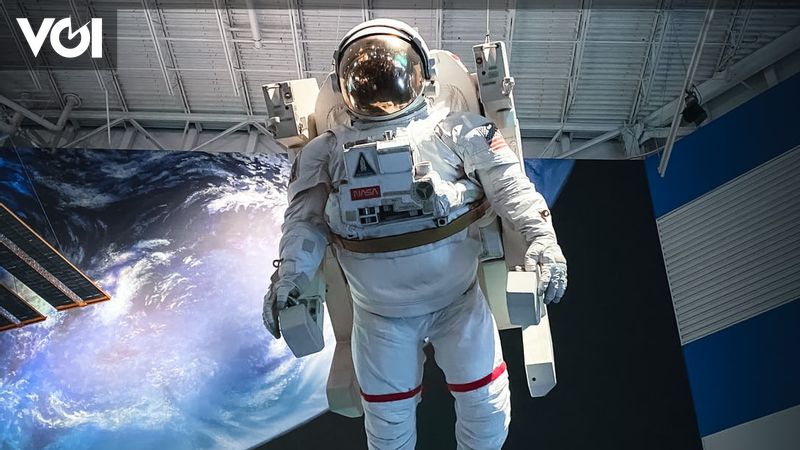JAKARTA – With age, premature wrinkles often appear without realizing it. To prevent this, a healthy lifestyle must be implemented, including trying to limit time in space.
According to reports, astronauts tend to have dry, scaly and thin skin, due to depletion of the natural oils that keep cells intact. But the downside of spaceflight, which changes the behavior of genes and appears to speed up the aging process, could be key for dermatological researchers, unlocking the mystery behind age-related skin problems.
This caught the attention of a toothpaste company with a new skin care division, Colgate-Palmolive. The company will use the International Space Station (ISS) as a test site for skin research. The ISS is a taxpayer-funded national laboratory, so NASA often invites research collaborations with private businesses.
To support the research, a human skin tissue culture plate was launched aboard the Cygnus Northrop Grumman spacecraft aboard the Antares rocket from NASA’s Wallops Flight Facility on February 19, 2022.
Specimens, cells from a single donor were loaded onto a supply vessel containing 8,200 pounds of research material and crew equipment.
“This study aims to study the molecular and cellular level changes that underlie skin damage in samples exposed to the space station’s microgravity,” said Lia Arvantitidou, Vice President of Colgate’s Division of Personal Care and Skin Research and Development.
Differences in molecular patterns between tissues can reveal clues about the biological mechanisms that occur when our bodies naturally repair skin.
Healthy skin helps regulate body temperature and serves as a protection against infection, an important function for surviving long space missions. While anti-aging skin care usually relies on Botox or facial fillers.
Arvantitidou says the thin and fragile skin among the elderly on Earth makes them more susceptible to cuts, bruises and less able to heal from flesh wounds.
NASA has long known that the weak gravity on the ISS is a stressful environment for the body. Skin breakdown is a normal part of life on Earth that occurs slowly over decades. But being in orbit appears to be a key driver for the aging process.
Because astronauts are limited to keeping clean in the same way they can on Earth. They use wet wipes for bathing and dry shampoo to clean their hair.
No washing machine to wash clothes. According to a recent review of the scientific literature in Skin Pharmacology and Physiology, these factors more often contribute to skin complications.
Skin conditions that the space station crew experienced over the years included psoriasis (scaly rash), loose nails, dermatitis (skin irritation), hypersensitivity, hair follicle inflammation, fungal, viral, bacterial infections, delayed wound healing, frostbite and cancer. skin.
The Colgate sample will consist of human skin cells on a porous surface to mimic the 3D organization of skin tissue. The grid set will freeze after different time intervals of exposure to weak gravity in space.
Then, they will be stored at -112 degrees Fahrenheit until scientists can study the samples after their spaceflight. As reported by MashableMonday, February 21.
–


